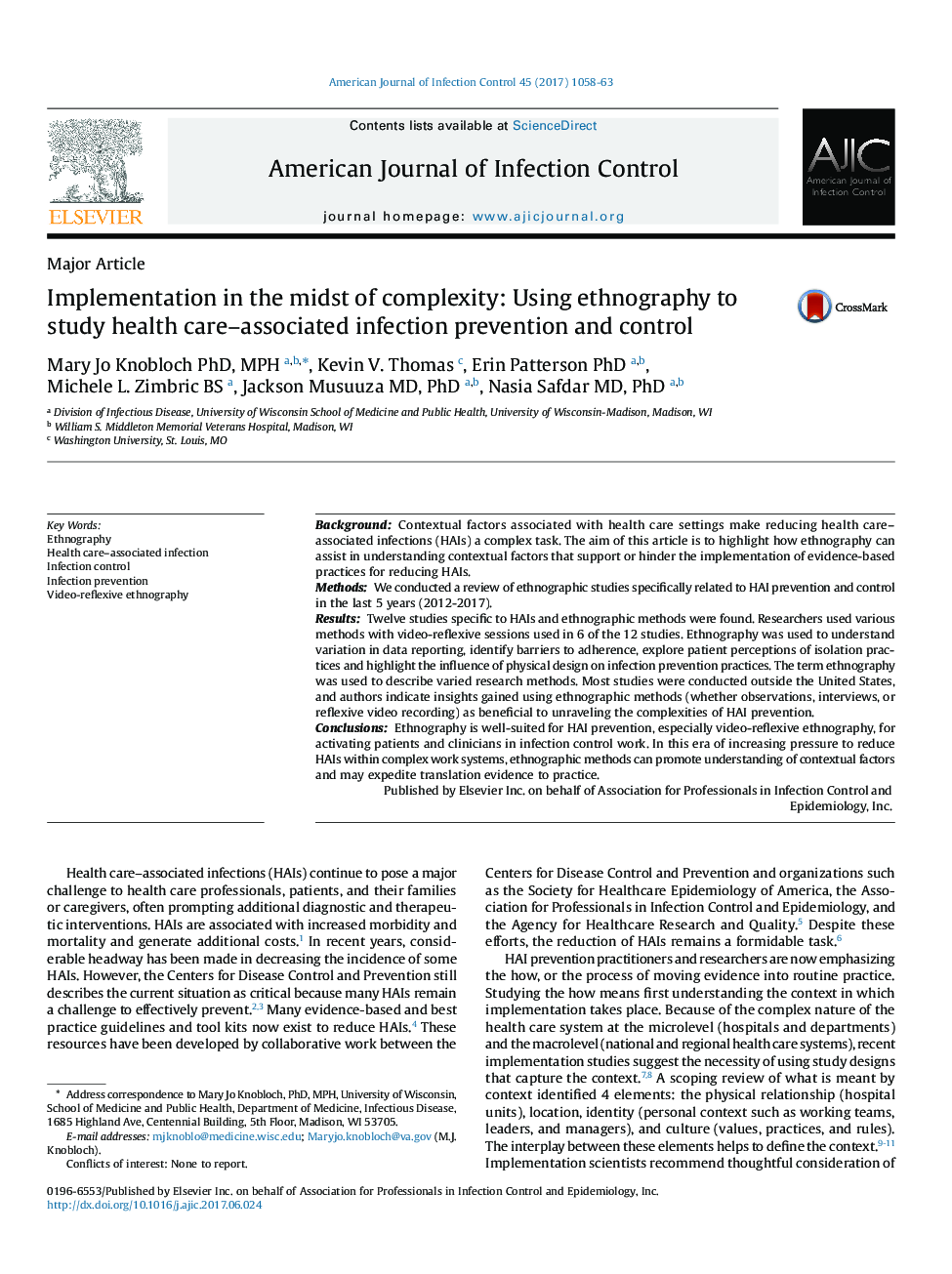| Article ID | Journal | Published Year | Pages | File Type |
|---|---|---|---|---|
| 5566165 | American Journal of Infection Control | 2017 | 6 Pages |
â¢Moving evidence to practice in complex environments may require methods that highlight context.â¢Ethnography is well-suited to study health care-associated infections (HAIs).â¢Many HAI studies using ethnography have used video-reflexive methods.â¢Ethnography can intersect with complexity science and influence real-time practice change.
BackgroundContextual factors associated with health care settings make reducing health care-associated infections (HAIs) a complex task. The aim of this article is to highlight how ethnography can assist in understanding contextual factors that support or hinder the implementation of evidence-based practices for reducing HAIs.MethodsWe conducted a review of ethnographic studies specifically related to HAI prevention and control in the last 5 years (2012-2017).ResultsTwelve studies specific to HAIs and ethnographic methods were found. Researchers used various methods with video-reflexive sessions used in 6 of the 12 studies. Ethnography was used to understand variation in data reporting, identify barriers to adherence, explore patient perceptions of isolation practices and highlight the influence of physical design on infection prevention practices. The term ethnography was used to describe varied research methods. Most studies were conducted outside the United States, and authors indicate insights gained using ethnographic methods (whether observations, interviews, or reflexive video recording) as beneficial to unraveling the complexities of HAI prevention.ConclusionsEthnography is well-suited for HAI prevention, especially video-reflexive ethnography, for activating patients and clinicians in infection control work. In this era of increasing pressure to reduce HAIs within complex work systems, ethnographic methods can promote understanding of contextual factors and may expedite translation evidence to practice.
